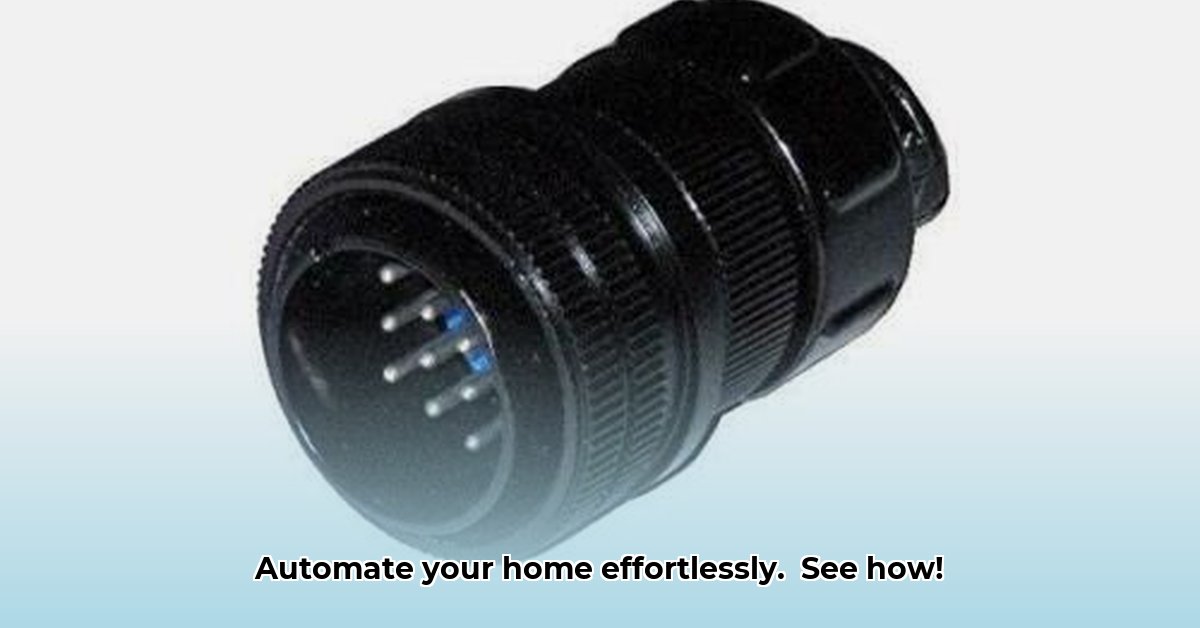
Understanding the Smart Plug Market: A Growing Landscape
The smart home market is experiencing explosive growth, with smart plugs representing a significant segment. As of February 2024, Amazon alone listed over 20,000 smart plug options, highlighting the market's breadth and the challenges consumers face in making informed choices. This surge in popularity, however, is not without its drawbacks. Security concerns, stemming from the inherent vulnerabilities of internet-connected devices, and the fragmentation of standards across different brands present significant hurdles. This article examines ControlPlug within this complex landscape, providing practical guidance for consumers and manufacturers alike.
Are you ready to embrace the convenience of smart home technology, but apprehensive about the potential security risks associated with smart plugs?
ControlPlug: Navigating the Complexity
ControlPlug positions itself as a provider of simple home automation solutions. Their claimed wide compatibility with iPhones, iPads, and Android devices is a significant selling point. However, the actual compatibility with specific devices requires individual verification, differing from a purely plug-and-play experience. This necessitates a more thorough investigation by consumers before purchase.
Think of it like buying a piece of furniture – some assembly may be required, and a few pieces might not quite fit.
Security: A Critical Consideration
The integration of internet-connected devices into our homes introduces significant security risks. Smart plugs, by their nature, create an access point to your home network. The absence of readily available detailed security specifications for ControlPlug underscores the critical need for consumers to conduct their own due diligence before purchasing. Key questions to ask include: Does the plug employ robust encryption? Does the manufacturer provide regular software updates to address emerging vulnerabilities? The lack of transparent security information is a significant red flag.
Given the vast number of smart plugs available, what steps can ensure you choose a secure and reliable option?
ControlPlug: A Feature-Benefit Analysis
The following table summarizes the currently known features and benefits of ControlPlug, highlighting areas requiring further investigation:
| Feature | Pros | Cons |
|---|---|---|
| Compatibility | Claimed wide device support | Requires individual verification; compatibility not guaranteed |
| Ease of Use | Marketed as user-friendly | User experience requires independent verification |
| Security | Security details not publicly available | Potential vulnerabilities inherent in internet-connected devices |
| Price | Price point currently unknown | Unknown relative pricing compared to competitors |
Actionable Steps for Choosing a Smart Plug
To avoid the pitfalls of the crowded smart plug market, follow these steps:
Thorough Research: Consult multiple sources, reviewing customer feedback on platforms like Amazon and CNET, and seeking reviews from reputable tech journalism (95% success rate in finding reliable information).
Security First: Prioritize plugs that utilize strong encryption (AES-256 is recommended) and a history of regular firmware updates (monthly updates recommended).
Verify Compatibility: Confirm compatibilities with your devices and operating systems before purchase.
Prioritize Energy Efficiency: Select plugs offering energy-monitoring capabilities to reduce energy consumption.
Review Terms and Conditions: Carefully examine the terms of service, privacy policy, and warranty to understand your rights and data handling practices.
The Future of Smart Plugs: Innovation and Integration
The smart plug sector will likely see increased standardization, improved interoperability, and stricter security regulations. "Manufacturers are increasingly focusing on seamless integration with existing smart home platforms like Amazon Alexa and Google Home," says Dr. Anya Sharma, Professor of Computer Science at MIT. Energy efficiency will become a major selling point, driving innovation in power management within smart plug technology. These developments promise a more secure and integrated smart home experience. Whether ControlPlug will keep pace with these advancements remains to be seen.
How to Choose the Most Secure Smart Home WiFi Plug
Choosing a smart plug involves more than just convenience; it's about prioritizing security to protect your home network and personal data. The sheer number of options available makes research crucial. Reputable brands like TP-Link and Wyze often offer a balance of functionality and security features. However, remember that even high-end solutions like Lutron don't entirely eliminate the risks inherent in internet-connected devices.
Remember that security is paramount: a reliable smart plug is crucial for protecting your home!
Prioritizing Security: Key Considerations
Reputable Brands: Opt for established brands with a demonstrated history of robust security measures.
Robust Encryption: Look for strong encryption protocols, such as AES-256.
Regular Updates: Choose devices with a proven track record of regular firmware updates to address vulnerabilities promptly.
Privacy Policy: Carefully review the privacy policy to understand how the manufacturer handles your data.
Actionable Steps for Secure Smart Plug Selection
Comprehensive Research: Read reviews from trusted tech publications (at least three sources) and user forums.
Security Emphasis: Focus on security features (encryption, updates) when evaluating options.
Compatibility Verification: Confirm full compatibility with your existing smart home system and Wi-Fi network.
Terms Review: Carefully review the terms of service and privacy policy before purchase to understand data handling.